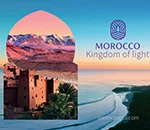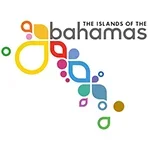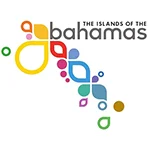 |
| Charles Mardiks |
While there’s no denying the tragic loss of life and suffering resulting from the global COVID-19 pandemic, it will be the economic repercussions that continue to plague the travel industry for some time.
The travel and tourism industry has enjoyed several years of impressive growth. According to recent numbers from the World Travel and Tourism Council, last year the tourism sector grew globally to a record $8.9 trillion of the world’s combined Gross Domestic Product, up from $8.8 trillion in 2018. This represents a contribution of 10 percent of the global GDP. In 2017, the sector represented $8.3 trillion of the combined worldwide GDP. Forty-four countries rely on the travel and tourism industry for more than 15 percent of their total share of employment. A total of 330 million jobs are supported by this industry around the world.
Early COVID-19 related headlines generally focused on passengers stranded on cruise ships and the closing of borders as well as the struggle of local businesses such as restaurants and retail. At the same time, the pandemic has knocked down many segments of the travel industry from airlines, cruise lines and hotels to attractions, museums and travel agency networks. Major travel players the likes of Hertz and LATAM Airlines have declared bankruptcy, and word on the street is there will likely be more economic casualties until a vaccine is widely available.
| This article is featured in O'Dwyer's Jul. '20 Travel & Int'l PR Magazine. |
Other industries have been able to shift their operations to respond to the pandemic and changed consumer buying patterns, such as retailers and fashion companies selling masks, cosmetic and skincare companies producing hand sanitizer and restaurants and bars focusing on take-out and delivery. It’s much more difficult for travel companies that are dependent on in-person experiences and attract consumers from national and global markets to do so. Sure, some travel companies are able to shift more focus on local/regional drive-to-markets. As an example, a travel agency that specialized in safaris to Africa immediately shifted gears and created wildlife safaris to the U.S. National Parks. Some cruise lines are reimagining itineraries to call on smaller, less-crowded or remote destinations. However, for island destinations and resorts or countries solely dependent on airlift, this is not as easy or fast of a fix. Similarly, hotels, destinations and airlines that generate the majority of their business from corporate travel and meeting and conventions the shift to an alternate business mix and the resulting climb out of the recession is no doubt going to be more difficult and take longer.
For many of us who operate boutique travel- and lifestyle-focused agencies and whose clients are grappling with this sudden crash of their business, the subsequent impact on our business is significant. Many of us have lived through an array of travel crises from 911, SARS and Ebola to such natural disasters as the volcanic ash cloud of 2010 to a myriad of hurricanes such as Katrina and even terrorist acts and wars. However, nothing compares to COVID-19 in its combined complexity, uncertainty and global scope.
So, what are some of the survival tactics that we can all employ to ride this economic storm out?
At this stage, we’ve all likely lost business or at the very least have had clients go on hiatus. As a result, we’ve likely trimmed all unnecessary overhead and probably had to make some painful staffing decisions. For some, it might be time to consider diversifying our client portfolio beyond just travel. Now is the time to maintain contact with former clients and those on hiatus to reach out with suggestions, media and business leads, even without remuneration. It’s about sustaining the relationships, so when revenue returns you’ll be top of mind. It’s the time to network—virtually, of course—like crazy; amp up your LinkedIn activity and other social outreach. Tap the professional organizations that you belong to. Participate in webinars and virtual events and panel discussions to remain visible. Share relevant, current client results with others.
It’s also time to help these clients with strategies on how to target new local/regional markets and conceptualize “one-tank” and hyper-local vacation programs. This is also a time to laser-target past guests and visitors who are already loyal to the brand or destination and trust that they will be safe and well looked after by them. Consider developing special value-added programs to reward their loyalty and incentivize them to return sooner than later and to recommend the brand to their friends and family.
It’s a great time to align with strategic partners to jointly fund campaigns that clients might not be able to afford on their own. It’s also wise to research niche and geographic markets that once medium- to long-haul travel is viable might be more likely to be the first to pack their bags. For example, adventure travelers who have a particular passion and a higher threshold for risk might be more apt to travel once things open up than families with young children or the mature market. As airlines announce return service from key gateway markets, this is the time to rollout geo-targeted campaigns.
Key influencers, travel writers and travel specialists will also want to get back out there early on to show their followers, readers, viewers and clients what it’s like to travel now, and that it’s safe to do so. As a result, the press trip, whether group or individual, might have a bit of a resurgence. It’s also smart to align with locally-based media, freelancers and/or influencers who contribute to outlets in other key markets during the period when other media are not able to travel. Someone who’s on-the-ground provides a trusted local perspective. Consider developing niche guided trips with noted influencers that they can sell to their followers. Reward the influencer with a trip and a possible commission on each trip sale.
While there’s no telling how long the dark economic cloud will hover over the travel industry, there are bound to be a few showers and perhaps even a storm in the not too distant future. However, with a bit of tenacity, ingenuity and flexible planning that can pivot to the ever-changing nature of this pandemic, you are certain to weather this storm too.
***
Charles Mardiks is founder and president of Mardiks PR.


 Weber Shandwick is providing PR and marketing communications services to the Moroccan National Tourist Office in New York.
Weber Shandwick is providing PR and marketing communications services to the Moroccan National Tourist Office in New York. Finn Partners has filed its six-month contract with the Bahamas Ministry of Tourism, Investments & Aviation, which is worth $240K.
Finn Partners has filed its six-month contract with the Bahamas Ministry of Tourism, Investments & Aviation, which is worth $240K. Weber Shandwick wrapped up its work for the Ministry of Bahamas at the end of 2023.
Weber Shandwick wrapped up its work for the Ministry of Bahamas at the end of 2023. The Aruba Tourism Authority is boosting its budget 29.4 percent to $2.2M at Zeno Group, according to its 2024 contract, effective Jan. 1.
The Aruba Tourism Authority is boosting its budget 29.4 percent to $2.2M at Zeno Group, according to its 2024 contract, effective Jan. 1. As inflation continues to impact spending, consumers are revisiting their list of what they’re willing to spend more of their money on. Luckily for those in the travel industry, experiences seem to be trending up on the “splurge” list.
As inflation continues to impact spending, consumers are revisiting their list of what they’re willing to spend more of their money on. Luckily for those in the travel industry, experiences seem to be trending up on the “splurge” list. 


 Have a comment? Send it to
Have a comment? Send it to 
No comments have been submitted for this story yet.